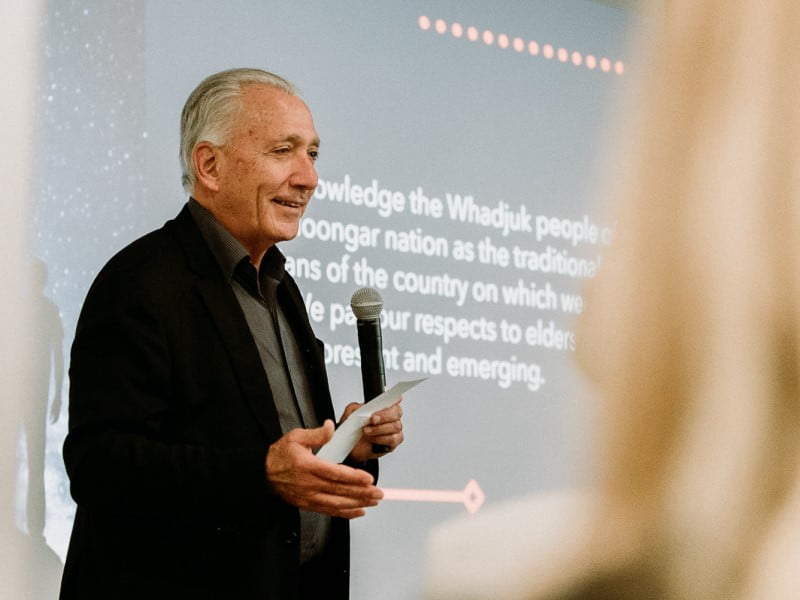Local innovation can be commercialised in Australia if the focus is on serving a need rather than relying on government support, and this can be the key to economic diversification, according to the founder of the Centre for Entrepreneurial Research and Innovation.
The Centre for Entrepreneurial Research and Innovation (CERI) is based in Perth and aims to help innovators and startup founders develop an entrepreneurial mindset and foster research commercialisation.

Its founder, Charlie Bass, said Western Australia has fallen behind the rest of the country in investing in other industries due to its reliance on resources, and this needs to be addressed.
“I realised that Western Australia in particular has what is considered the ‘resource curse’, we’re so blessed with resources, both mining and oil and gas, that everything is just so focused on feeding that beast that it’s not creating any future outside of resources,” Mr Bass told InnovationAus.com.
About half of the startups that have been through the CERI since it launched in 2016 have been from the medical technologies and biotech sectors, and this is an area of strength for the state. But too often these companies are lost overseas.
“In the life sciences, whether it’s medical research or med tech, biotech, we have some world class things going on here, absolutely world class. But where does it go? It disappears overseas. Western Australia could also be producing energy for next to nothing. But what’s happening with that?” Mr Bass said.
The state government has been bolstering support for medtech and healthtech recently, with the launch of a $5 million commercialisation seed fund at the end of March. Last week it was announced that the upcoming state budget will include $8.65 million to implement the state Health and Medical Life Sciences Strategy.
There also needs to be less reliance on government support and funding by local startups, and more of a focus on building a product that people actually want, Mr Bass said.
“I generally say to federal and state politicians, just get out of the way, don’t put up roadblocks, and promote and celebrate good things that are happening because the amount of money they put is nice, but it’s not enough,” he said.
“If anything is going to work, its customer-focused innovation and startups. People get too used to those handouts, if startups have good innovation that people are willing to pay for you really don’t need the government.”
Where government funding is needed is to address the so-called “valley of death” between developing a product and commercialisation, he said, and subsidised housing and living expenses to attract skilled migrants to the state.
The CERI offers a 14-week program which helps develop the entrepreneurial mindset of innovators and startup founders, research translation and prototyping, and customer development.
Startups also have access to a mentorship program, the chance to apply for a residency program, and the $100,000 micro-seed fund CERI Start which began last year.
Originally from the United States, Mr Bass moved to Western Australia in 1978 through the iron ore sector and has since made his fortunes throughout the mining industry, most notably the sale of co-founded Aquila Resources in 2014 for $1.4 billion. Along with being executive chairman position of CERI he is the managing director of Eagle Mountain Mining.
Mr Bass is also pushing for more action on education to build the skills needed to diversify away from the resources sector.
“Another future can be reached through education. On the one hand there’s working with disadvantaged kids but on the opposite end of the spectrum when you look at our PhDs and postdocs, what kind of education can we give them?” he said.
“When you look at the Global Innovation Index Australia punches well above its weight in knowledge creation, and we rank the same as Mongolia, on that knowledge getting out and something happening with it.”
Before the pandemic, Mr Bass said that most of CERI’s course participants spoke English as a second language, but this has changed in the last two years with substantial increases in the proportion of local participation.
Despite the lure of venture capital in places such as Silicon Valley, Mr Bass said that startups should also consider listing on the ASX and trying to tap into the family wealth accrued by those in the mining sector.
“You can stay in control your own destiny. You’re more able to do that on the exchange. When you go to venture or even private equity you’re stuck, you’re not working for yourself anymore. You’re working for them and all they want to know is how much money can I make how quickly and then you’re out,” he said.
“From a founder’s perspective, if you want to build something that lasts generations or if you want to just build it and flog it as yourself as quickly as you can, you’ve still got that optionality on the ASX. And from an investor standpoint, you’re more able to pivot if you’re on the ASX and if whatever you invested in doesn’t work, you can always grab and change and get something else going and live another day.”
The centre itself is funded by the Bass Family Foundation which was initially founded in 2006 to help support children from disadvantaged backgrounds. The centre also accepts donations and has received some state government funding.
CERI’s Concept to Creation workshop series begins on April 28, 2022. Applications to attend are still open and can be found here. The series aims to give attendees the skills to create a startup.
Do you know more? Contact James Riley via Email.

